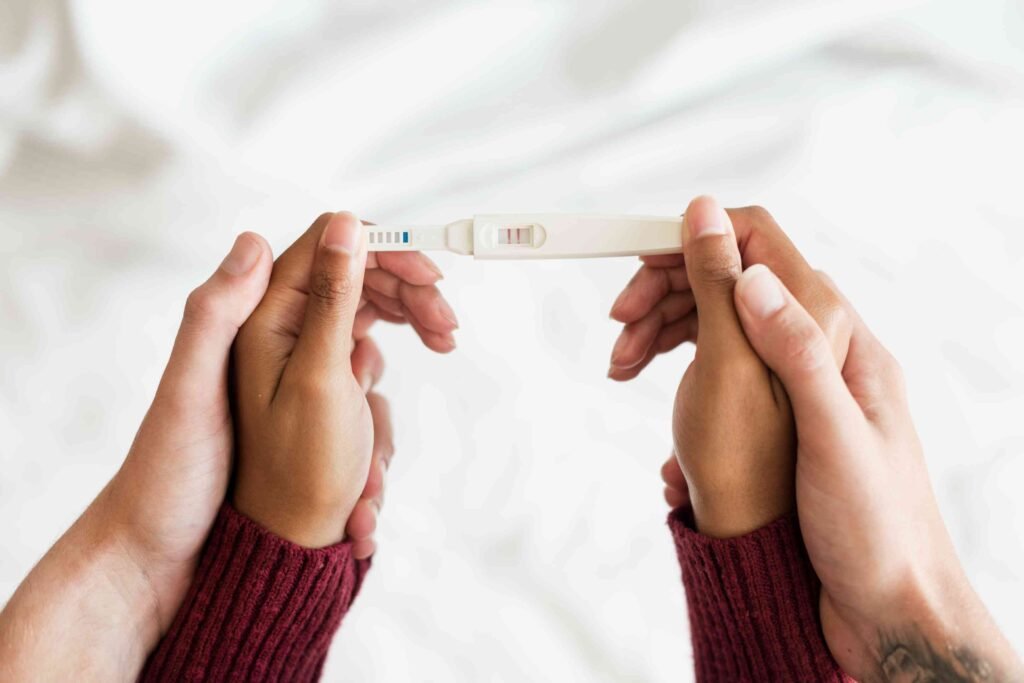IVF vs. IUI: Which Fertility Treatment Is Right for You?
Fertility struggles can feel overwhelming. There’s the emotional roller coaster, the time pressures, the constant questions from well-meaning friends and family. And then there’s the biggest question of all: Which fertility treatment is right for you?
If you’ve been trying to conceive without success, you’ve likely come across two commonly recommended options—In Vitro Fertilization (IVF) and Intrauterine Insemination (IUI). But how do you choose between them? How do you know which one makes sense for your specific situation, your body, and your future plans?
Let’s break it down together. By the end of this post, you’ll have a clearer sense of your options and be better equipped to answer that lingering question: Which fertility treatment is right for you?
Understanding the Basics: IVF vs. IUI
Before diving into comparisons, it’s helpful to understand what each treatment involves.
What Is IUI?
IUI stands for Intrauterine Insemination. It’s a relatively simple and minimally invasive procedure. Here’s how it works:
- Your partner’s or a donor’s sperm is washed and concentrated.
- This processed sperm is placed directly into your uterus around the time of ovulation.
- The hope is that fertilization happens naturally inside your body.
This process is often paired with fertility medications to increase your chances of ovulating multiple eggs.

What Is IVF?
IVF stands for In Vitro Fertilization, and it’s a more complex process:
- You take medications to stimulate your ovaries to produce multiple eggs.
- Eggs are retrieved from your ovaries and fertilized with sperm in a lab.
- Embryos are monitored for development, and one or more are transferred into your uterus.
The Big Question: Which Fertility Treatment Is Right for You?
There’s no one-size-fits-all answer. The best treatment depends on your unique fertility journey, medical history, budget, and future goals. But let’s explore the key differences and how they might affect your decision.
Comparing Success Rates
Success is often the first thing couples want to talk about. And understandably so.
- IUI Success Rates: These can range from 10% to 20% per cycle, depending on your age, the cause of infertility, and whether fertility drugs are used.
- IVF Success Rates: IVF typically has higher success rates. Depending on age and other factors, success rates range from 40% to 60% per cycle for women under 35.

It’s important to remember that fertility success is cumulative. While one IUI may have a lower chance of working, multiple IUIs might increase your odds. That said, IVF’s higher success rate per cycle is a compelling reason many couples lean toward it.
So if you’re wondering which fertility treatment is right for you, success rate might be a significant part of your answer.
How Invasive Is Each Treatment?
Let’s be honest—medical procedures can be intimidating.
- IUI is minimally invasive. It feels a bit like a pap smear, and you’re in and out of the clinic quickly.
- IVF involves more steps: injectable medications, egg retrieval (a surgical procedure under sedation), and embryo transfer.
Some people don’t mind the extra steps if it means higher chances of success. Others may prefer to start with a less invasive method before considering something more intensive.
Medical Conditions and Fertility Factors
Your personal health and fertility history play a major role in determining the right path.
IUI May Be a Better Fit If:
- You have unexplained infertility
- You’re dealing with mild male factor infertility
- You have cervical mucus issues
- You’re using donor sperm
- You’re a single parent or same-sex female couple

IVF May Be Recommended If:
- You have blocked or damaged fallopian tubes
- You’ve had unsuccessful IUI cycles
- You have severe male factor infertility
- You have endometriosis or PCOS not responsive to other treatments
- You’re considering genetic testing of embryos
If you fall into one of these categories, your doctor might strongly suggest IVF over IUI—or vice versa. This is where personalized care really comes into play.
Timing and Age: The Fertility Clock
Another crucial factor in answering which fertility treatment is right for you is your age.
- Women under 35 may be encouraged to try IUI first, especially if their fertility challenges are unexplained or mild.
- Women over 35 often consider going straight to IVF, especially if time is of the essence.
Why? Because egg quality and quantity tend to decline with age. IVF gives fertility specialists more control and more tools to work with limited resources.

Emotional and Physical Demands
Let’s not gloss over the emotional side of fertility treatments.
- IUI is generally less stressful—fewer appointments, fewer medications, fewer ups and downs.
- IVF, while hopeful and powerful, can feel more intense. The hormonal medications can affect your mood. The waiting periods (for fertilization, embryo growth, pregnancy testing) can be emotionally draining.
Some couples prefer to ease into treatment with IUI before ramping up to IVF. Others are emotionally ready to go all in with IVF from the start.
If you’re feeling overwhelmed, it’s worth asking not just which fertility treatment is right for you, but also which one fits your current mental and emotional capacity.
Trying Both: A Stepwise Approach
Sometimes, you don’t have to choose just one.
Many couples start with IUI and move to IVF if it doesn’t work. This tiered approach is often recommended when:
- You’re under 35
- You have no known fertility issues
- You prefer a less aggressive and less expensive starting point
Your doctor might suggest trying 3 to 6 IUI cycles before considering IVF. Of course, if time is a concern or if you’re facing more serious fertility barriers, skipping straight to IVF might make more sense.

Final Thoughts
Choosing between IVF and IUI isn’t just a medical decision—it’s a deeply personal one.
It’s about your comfort level, your financial realities, your timeline, and your emotional bandwidth. It’s about balancing risk, hope, science, and instinct.
Maybe you’re at the very beginning of your fertility journey, and IUI feels like a gentle first step. Or maybe you’ve been trying for a while, and you’re ready for the higher success rates that IVF can offer.
Either way, you’re not alone. Fertility treatment is a path that many have walked before you—and while the road can be tough, it’s also filled with strength, community, and hope.


